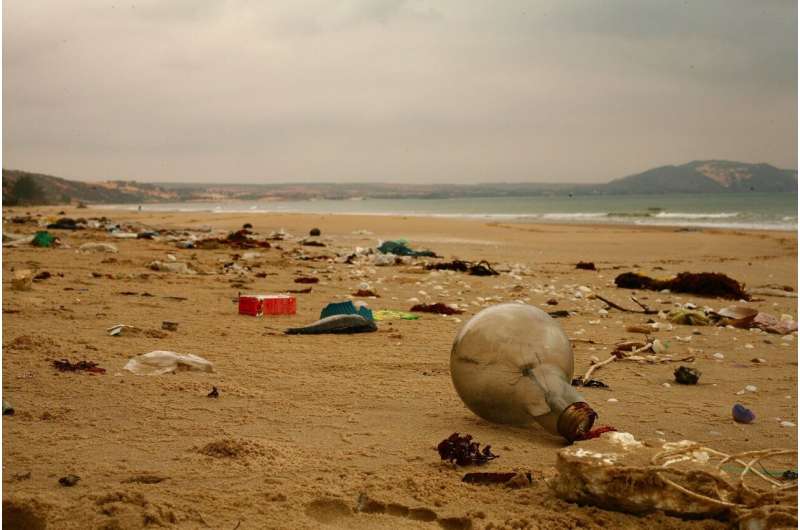This article has been reviewed according to Science X's editorial process and policies. Editors have highlighted the following attributes while ensuring the content's credibility:
fact-checked
proofread
Microplastics can help dangerous bacteria to survive on Scottish beaches

It has been understood for some time that microplastics provide a protective environment (the so-called "plastisphere") in which bacteria can survive in wastewater. For the first time, researchers at the University of Stirling, Scotland, have tracked how that could enable bacteria to survive the journey to the sea and make their way onto our beaches, where they can come into contact with humans.
Lead researcher Rebecca Metcalf, supervised by Professor Richard Quilliam, subjected microplastics colonized by bacteria in wastewater to the different environments that they would likely pass through on their way to our beaches. Metcalf and her team found that not only could bacteria such as E. coli survive the entire journey, but that viable bacteria also survived for 7 days on the sand.
"The plastic is providing a substrate for transferring pathogens from wastewater, and through river water, estuary and seawater, and finally up onto the beaches where they are much more likely to come into contact with humans," explains Metcalf. "Other surfaces where bacteria colonize, such as seaweed, wouldn't necessarily go through that transfer route."
Concerned by their findings, Metcalf wanted to see if this theoretical survival was happening on real beaches in Scotland. They collected polyethene and polystyrene plastic waste from 10 Scottish beaches and screened them for 7 target bacteria that cause disease in humans. Alarmingly, they found that these bacteria were present in virtually all of the samples, with some showing resistance to our most commonly used antibiotics.
This is worrying in light of sewage leaks and wastewater overflows onto our beaches. "We already have sewage ending up in the environment that contains harmful bacteria. But the plastics are transporting bacteria into places where they are more likely to come into contact with people," says Metcalf.
"We hope that our research will add to the growing overarching evidence and support for increasing public awareness and ultimately pushes towards legislative changes for plastic discharge to the environment."
Research still needs to take place to fully understand the potential risk that this may pose to those bathing at Britain's beaches, as the likelihood for these pathogens to cause disease in humans is unknown. Researchers still urge the public to take care around plastic pollution but stress the importance of removing plastic from our beaches.
"Don't be afraid of taking part in a beach clean; it is vital that we remove the plastics from our beaches and dispose of them correctly, but I would encourage the public to wash their hands or use gloves."
Provided by Microbiology Society




















